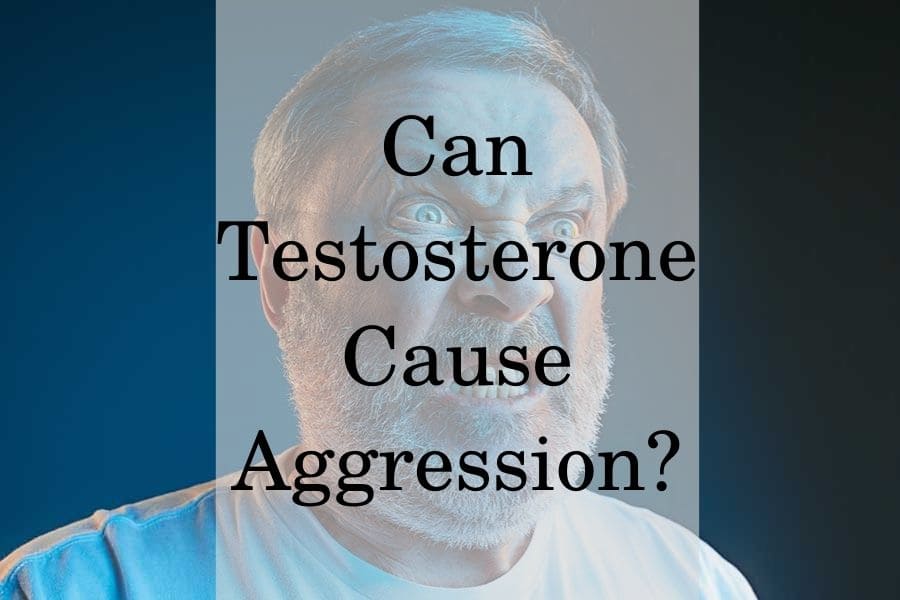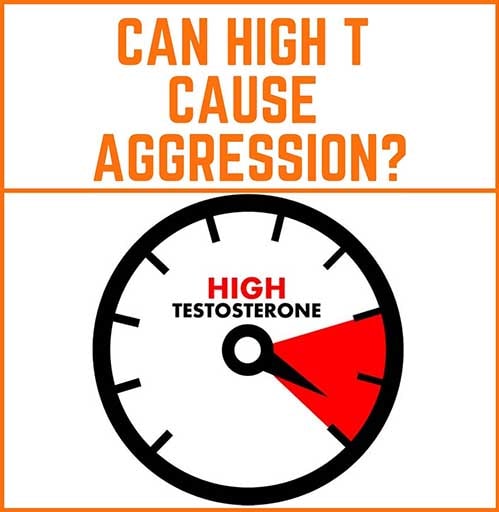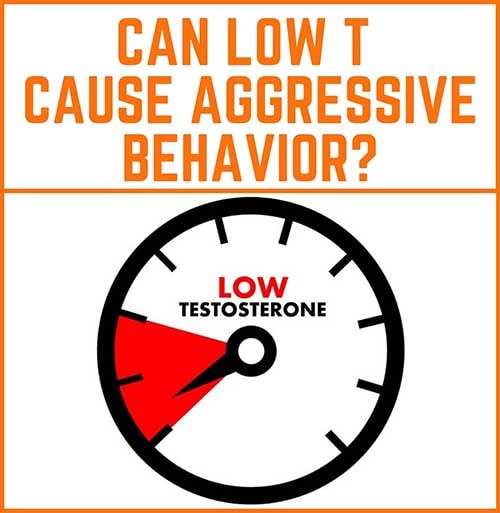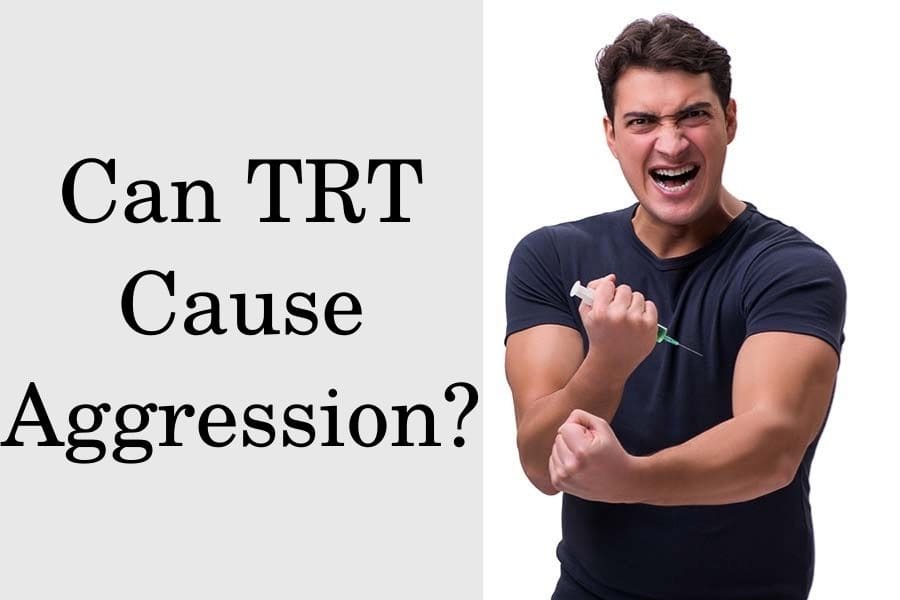Testosterone is sometimes used as a synonym for aggression, violence, and rage. The reports of violent behavior and “roid rage” in athletes who abuse testosterone also contribute to this image.
Scientists reveal that the connection between testosterone and behavior is much more complex and multiple hormones play a role in it.
Furthermore, medically prescribed testosterone is available only for men with hypogonadism (low T).
This treatment aims to achieve physiological testosterone concentrations and alleviate the debilitating symptoms of the condition. Thus, there’s NO RISK for extreme behavior and mood swings in men who are taking it legally.
Does testosterone make you angry?
There is an ongoing scientific debate about whether higher testosterone levels is a major cause of aggression. Nevertheless, the majority of studies suggest a small but positive association between T levels and aggressive behavior.
It’s important to note that T levels are not stable all the time but fluctuate throughout the day. Therefore, the scientists report that aggressive behavior correlates stronger with changes in testosterone, rather than its baseline levels.
Another trial also revealed that men who have lower reactivity in T levels are generally less aggressive.
It’s possible that the rapid spikes in testosterone may have a stronger impact on behavior compared to the mean T levels
Despite the fact that women have significantly lower T levels, there is evidence suggesting a small positive relationship with female aggression as well.
Other hormones such as oxytocin, estrogen, and progesterone may have an even greater impact on female behavior. For example, higher levels of aggression in women may be associated with elevated oxytocin levels. On the other hand, higher estrogen, progesterone, and cortisol reduce violent behavior.
In both men and women, testosterone affects mood and behavior by activating a part of the brain called the amygdala. This is where emotions are formed. Then other parts of the brain such as the prefrontal cortex perceive and control these emotions.
Cortisol may oppose the effect of testosterone and suppress anger by facilitating the control of the prefrontal cortex on impulsive behavior. Serotonin also aids in regulating and reducing impulsiveness.
Does high testosterone cause anger?
Higher T levels are related to dominant behavior. However, this does not necessarily mean that men with high testosterone are more aggressive than those with normal or low T.
Studies on healthy men with normal levels suggest that increasing their testosterone slightly above the physiological maximum (37.5 nmol/l = 1080 ng/l) causes improved mood but little to no changes in aggressive behavior.
Having a high T that is within the physiological norms is not likely to induce aggressive behavior
On the other hand, anger alone may lead to a spike in testosterone levels. Evidence reveals that anger-inducing events lead to a significant increase in salivary T levels but do not affect cortisol levels.
Other trials also support the effect of anger on testosterone but report conflicting findings on the changes in cortisol. There are studies reporting both high and low levels of cortisol related to anger.
If T levels are too high, such as when abusing different anabolic steroids, there may be powerful episodes of anger and violence are termed “roid rage”.
Furthermore, when testosterone is significantly above the normal references, you are at risk of health problems such as high blood pressure, elevated red blood cell count, thrombosis, and prostate enlargement.
Can low T cause anger?
Low levels of testosterone can have negative effects on mood as well. However, there is currently no proven link between low T and aggression in men or women.
Low T can make a man grumpy rather than angry. Also, low T is linked to irritability, depression, anxiety, mood swings, and lack of motivation.
Also, low testosterone is a common cause of depression and anxiety among men. Without sufficient T stimulation, serotonin and dopamine activity in the brain is reduced which leads to complaints. Symptoms are often treated with antidepressants while the true cause may remain undiagnosed for years.
Can legal testosterone therapy make you angry?
A study in hypogonadal men reveals that TRT does not lead to an increase in aggression or violent mood levels. On the contrary, the scientists report significant reductions in tension, anger, and fatigue.
Patients shared that they feel improvements in mood and energy levels. Furthermore, levels of aggression in the treated men correlated significantly with impulsive behavior, rather than T levels.
TRT is not likely to cause rage when used under medical supervision and dosed properly
Official guidelines confirm that if you have low T, testosterone treatment will ameliorate your symptoms of chronic fatigue, depression, irritability and improve your mood.
Besides, TRT is proven to improve libido, sexual function, fat loss, muscle size and strength, bone density, and facial hair growth.
What is the main cause of anger problems?
Anger is often a result of your social and cultural environment. It is normal to feel angry when you have experienced injustice, grief, or other triggering event.
There are neuromediators in the brain such as serotonin and dopamine that can help you control your anger. Serotonin modulates the connectivity between the amygdala and the prefrontal cortex which influences impulsive aggression.
However, disturbances in the normal function of these mediators may lead to the incidence of uncontrollable anger. Causes include mental health disorders such as anxiety and depression, or alcohol and substance abuse.
Alcohol abuse is one of the most common causes of uncontrollable anger. Statistics show that 30-50% of violent acts in different countries are committed under the influence of alcohol.
Alcohol makes it harder to control your emotion by interacting with multiple neurotransmitters in the brain. Therefore, you become more prone to impulsive aggression and violent behavior.
Furthermore, alcohol abuse has several negative effects on your health, including your heart, brain, liver, and testicles.
As little as a glass of wine can lower your T levels by 7%. Besides that chronic alcohol consumption leads to significantly lower testosterone and higher estrogen levels in men.
3 easy tips to deal with anger
- If you are on TRT and experience increased anger, you should first consult with your endocrinologist. The specialist may reduce your dosage or switch the form of the treatment you receive.
- If your anger is related to a triggering or traumatic event, you have several options to deal with your feelings – either express your anger in a safe manner, suppress it, or attempt to control your behavior until you calm down and your emotions subside.
- If you experience anger in combination with depression, anxiety, or other mental health disorders, you should always consult with a medical doctor who can prescribe you proper medications and therapy.
Other options for dealing with your anger may include behavioral therapy, support groups, anger management classes, and exercises.
Get a free consultation with our medical expert for any questions about hormone replacement therapy




